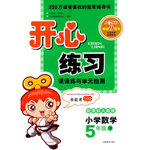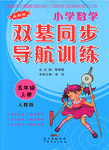题目内容
C
The Chinese have used a method called acupuncture to help perform operations for about 4,000 years without putting the patient to sleep. This involves inserting(插入)flexible needles (针)into certain parts of the body. The needles used are available in a number of stores in China and everyone may buy them.
To learn how to use needle takes about one month of training. But to be skillful requires greater time. The person who performs the acupuncture knows how to insert the needles so the needles themselves are not painful. This person also knows where to place the needles so the patient feels no pain in the area where the operation is to be performed. The needles are not necessarily inserted near the place where the pain is to be prevented. In the past, a particular operation might require 25 or more needles placed in various parts of the body. But now this operation requires only 3 or 4 needles.
Today the Chinese doctors are trying to learn more about acupuncture. They are trying to develop a convincing theory to explain how the needles work in preventing pain, or, why a needle in the wrist(手腕), for example, would prevent the pain in the area of the mouth.
A patient who needs an operation is given a choice between having acupuncture or having one of the chemicals used for putting him to sleep. It has been estimated that over half of the patients choose acupuncture because there is no sickness after the operation whereas(然而,反之) the chemical may make the patient sick for a few hours or a day.
63.Acupuncture is a kind of _______.
A. medical needles B. medical equipment
C. medical technique D. medical examination
64. To perform the acupuncture skillfully, one _______.
A. has to learn how to insert the needles accurately in the right place
B. should insert the needles where the pain is to be prevented
C. needs to be trained for a short period of time
D. must use fewer needles than in the past
65. According to the 3rd paragraph, we can infer _______.
A. people must insert a needle in the wrist to prevent the pain in the mouth
B. people come to realize the shortcomings of the acupuncture
C. people are convinced to use the acupuncture to cure diseases
D. people need to make deeper research into the acupuncture
66.Nowadays, more and more people prefer having acupuncture because _______.
A. acupuncture has no side effects after the operation
B. acupuncture costs them less than having chemicals
C. chemicals usually cause many more deaths
D. they want to protect the traditional Chinese medicine
67. The author of the passage tends to be ________ acupuncture.
A. strongly against B. in favor of C. doubtful about D. uninterested in
【小题1】C
【小题2】A
【小题3】D
【小题4】A
【小题5】B

 开心练习课课练与单元检测系列答案
开心练习课课练与单元检测系列答案 开心试卷期末冲刺100分系列答案
开心试卷期末冲刺100分系列答案 双基同步导航训练系列答案
双基同步导航训练系列答案It was just getting dark. There was a touch of fog and I was on a lonely stretch of road. 36 I was going along cheerfully, thinking about the dinner I would eat when I got to Salistury .
I was going along 37 at about thirty-five miles an hour when suddenly I heard a scream, a 38 scream--- “ Help! ” I looked round, but the only 39 of life was a large, black, rather suspicious--looking(可疑的)car just 40 a bend in the road about a hundred yards away. That was where the cry had come from. I 41 speed and went after it. I think the driver saw what I was doing, for he did the same and began to draw 42 me. As I drew near, the girl’s voice came again, a lovely voice but trembling with 43 .
“Let me go, you coward; you’re hurting me. Oh ! Oh ! ”
I felt my 44 boil. The fog was coming down 45 now, and the countryside was lonelier. I had no 46 that the murderous guy in the car noticed this. Again came a cry.
“Drop that knife, you fool. Oh ! ” Then a cry and a groan(呻吟).
If I was to save her, it was now or 47 . Perhaps even now I was too late. But if I couldn’t save the girl, I would at least try to bring the murderer to 48 . The car was only a couple of yards away now. I drove the bike right across its 49 , and its brakes(刹车)screamed as the driver tried to pull it over and 50 into the ditch(沟)at the side of the road. The door of the car was pushed open angrily and a dark, evil-looking fellow stepped out .
“You fool!” he shouted as he came towards me with his fist raised to hit me. But I was 51 than he. I put all I could into 52 that would have knocked out Joe Louis. It 53 him right on the point of the chin; his 54 slowly bent under him, and he dropped to the ground without a sound. I rushed to the car, 55 open the door and looked inside. There was no girl there. Suddenly from the back of the car came a voice.
“You have been listening to a radio play, Murder in Hollywood, with Mae Garbo and Clark Taylor. The news will follow immediately . ”
|
1. |
|
|
2. |
|
|
3. |
|
|
4. |
|
|
5. |
|
|
6. |
|
|
7. |
|
|
8. |
|
|
9. |
|
|
10. |
|
|
11. |
|
|
12. |
|
|
13. |
|
|
14. |
|
|
15. |
|
|
16. |
|
|
17. |
|
|
18. |
|
|
19. |
|
|
20. |
|
My first most vivid and broad impression of the identity of things seems to me to have been gained on a memorable raw afternoon towards evening near my parents’ tomb in the churchyard.
“Hold your noise!” came a terrible voice, as a man started up from among the tombs at the side of the church. “Keep still, you little devil(小鬼), or I’ll cut your throat!”
A fearful man, all in coarse grey, with a great iron on his leg. A man with no hat, and with broken shoes, and with an old rag tied round his head. He seized me by the chin(下巴).
“Tell us your name!” said the man. “Quick!”
“Pip, sir.”
“Show us where you live,” said the man. “Point out the place!”
I pointed to where our village lay, on the flat in-shore among the alder-trees and pollards, a mile or more from the church.
The man, after looking at me for a moment, turned me upside down, and emptied my pockets. There was nothing in them but a piece of bread.
“You young dog,” said the man, licking his lips, “what fat cheeks you ha’ got. Darn me if I couldn’t eat em, and if I han’t half a mind to’t!”
I earnestly expressed my hope that he wouldn’t, and held tighter to the tombstone on which he had put me; partly, to keep myself upon it; partly, to keep myself from crying.
“Now then lookee here!” said the man. “Where’s your mother?”
“There, sir!” said I.
He started, made a short run, and stopped and looked over his shoulder.
“There, sir!” I timidly explained, pointed to the tombstone. “That’s my mother.”
“Oh!” said he, coming back. “And is that your father alonger your mother?”
“Yes, sir,” said I; “him too; late of this parish(教区).”
1. The “voice” in the second paragraph came from______.
A. the church B. the man C. the bank D. the boy
2.The boy probably lived _____.
A. in the parish B. in the valley C. in the city D. in the country
3.We can infer from the passage _____.
A. the boy was very calm and smart
B. the man hit the boy in the face
C. the boy would forever remember the raw afternoon
D. the man was very kind and considerate
4.The passage is most probably adapted from________.
A. a news report B. a science fiction C. a novel D. a review
 He walks
painfully until he reaches his chair. Then he sits down
slowly, puts his crutches on the floor, undoes the clasps (扣压环) on his legs, pushes one
foot back and extends the other foot forward. Then he bends down and picks up
the violin, puts it under his chin, nods to the conductor and begins his play.
He walks
painfully until he reaches his chair. Then he sits down
slowly, puts his crutches on the floor, undoes the clasps (扣压环) on his legs, pushes one
foot back and extends the other foot forward. Then he bends down and picks up
the violin, puts it under his chin, nods to the conductor and begins his play.